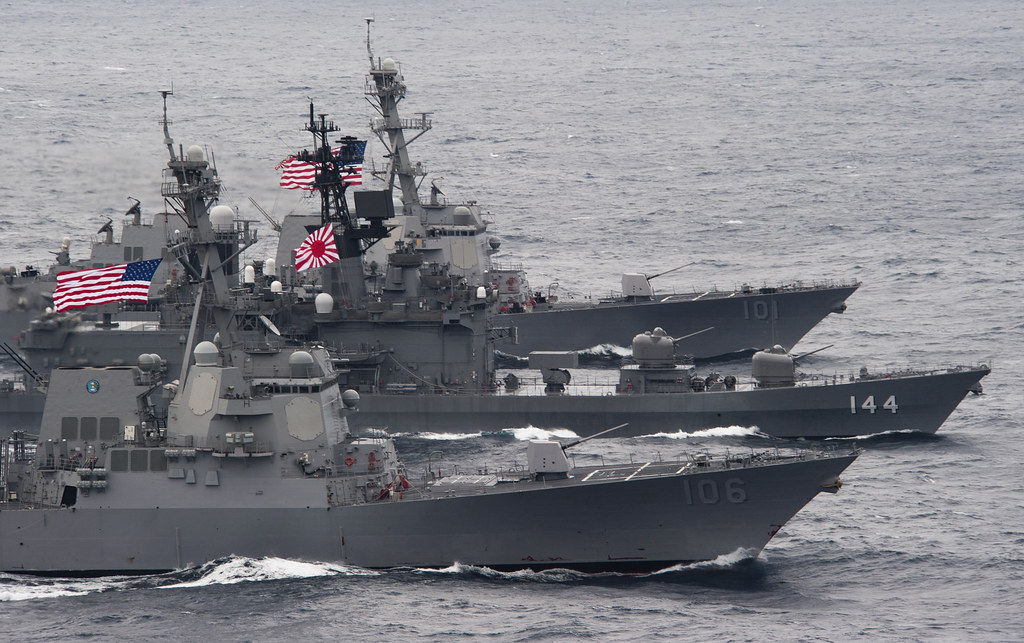 |
| Image: Flickr User - Official U.S. Navy Page |
By Yuki Tatsumi
What will Tokyo do to demonstrate its commitment?
It’s turned out to be an eventful week for the South China Sea. On October 26, the USS Lassen conducted a freedom of navigation operation (FONOP) within 12 nautical miles of an artificial land feature that China has reclaimed and been building on since the beginning of this year. China strongly condemned the U.S. action as having “threatened China’s sovereignty and security interests, jeopardized the safety of personnel and facilities on the reefs, and damaged regional peace and stability.” But the United States firmly maintains that what its Navy ships did was a routine freedom of navigation operation, which it is entitled to conduct in accordance with the international law.
At China’s request, U.S. Chief of Naval Operations John Richardson and his Chinese counterpart Wu Shengli had a one-on-one video conference on October 29 regarding the U.S. action. Although no details of their discussion have been released, it is clear that their conversation was triggered by USS Lassen’s sailing near China’s artificial land feature.
In addition, on October 29, the Permanent Court of Arbitration ruled that it accepts the arbitration case that Philippines submitted vis-à-vis China. In the months ahead, the Court will deliberate on four primary questions: (1) status of China’s so-called nine-dash line, (2) the legality of Chinese occupation of various land features in the Spratly Islands, (3) the legality of China’s exploitation of natural resources within areas that would be considered as the Philippines’ exclusive economic zone (EEZ) under the United Nations Law of the Sea Convention (UNCLOS), and (4) whether China has interfered with the Philippines’ freedom of navigation in its own EEZ. Washington welcomes this decision, as it has long held the position that the sovereignty claims in South China Sea need to be solved through diplomatic means, including arbitration.
Now that the tide in the international community seems to be converging in the direction of questioning China’s recent assertiveness in its maritime claims in South China Sea, Japan may be tested for its commitment to making a “proactive contribution to peace.”
Read the full story at The Diplomat
